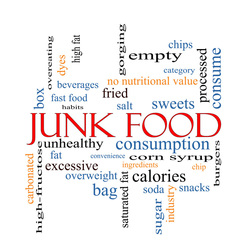 Beach!! I intentionally loaded up on several snacks and treats at the grocery store for our last year’s summer beach vacation. It was fun to treat our kids with fun snacks they do not typically get at home. As much as I was enjoying the moment and some of the snacks myself, I couldn’t resist the urge to say something. It was about the second day when I realized every box or bag was open and I finally said, ”How much junk are we going to eat?” in my half playful voice, which means the other half of my voice was expressing alarm. One of our boys shrugged his shoulders and matter of factly said, “I don’t know…as much as we have.” He nailed it! Are your children as smart as mine?! Of course they are. Kids simplify and say it like it is. As a matter of fact, studies show, the more food choices you have, the more you will eat. In addition, the more convenient a food is to take with you, the more you will eat. There are processed and packaged foods everywhere. The sooner we start grabbing an apple for a snack instead of a package of something junky, the better off we will be. As a matter of fact, I feel confident to say if you bring a packaged bar of some sort with you to work, you will eat it regardless. If you bring an apple, for example, you will eat it only if you are hungry. Can anybody relate to this? I want you to avoid processed foods. I will share 7 ingredients you should avoid, and give you good reasons why. By reading the ingredients panel on every food you consider putting in your basket and avoiding these 7 ingredients, you will naturally eliminate many processed foods from your pantry and fridge. At the very least, it will help you make better choices.
The best approach to a healthy diet is choosing real foods in their purest form. Shopping the perimeter of the grocery store where your produce, meat, fish, poultry and dairy are, is the best place to shop. Make sure to buy whole grains that are just the grain and no other ingredients (“brown rice” for example) and a few bags of frozen veggies to help you eat healthy throughout the week when your fresh veggies run out, or when you are in a time pinch. Moderation, portion control and variety are key. I do not like the idea of “food science” which is anything artifical and made in a lab. I love the idea of real food and I love the practice of moderation. Have your favorites sometimes, choose wisely, and mostly eat plant foods. We have many choices. Let’s make good ones! Health Inspires.
1 Comment
|
Kathryn ScoblickMy passion and purpose is helping people reach their full potential and master their wellbeing. Categories
All
Archives
February 2021
|
|
Disclosure: Always consult with your physician or other qualified health care provider before beginning any diet or exercise program and ask whether you are healthy enough to engage in a diet and exercise program. Never disregard, avoid or delay in obtaining medical advice from your doctor or other qualified health care provider concerning your overall health and wellness, including your physical, mental and emotional wellbeing. If you have or suspect that you have a medical problem or condition, please contact a qualified health care professional immediately. It is your choice to follow the suggestions, opinions and advice given by a Health Inspires wellness coach.
|
